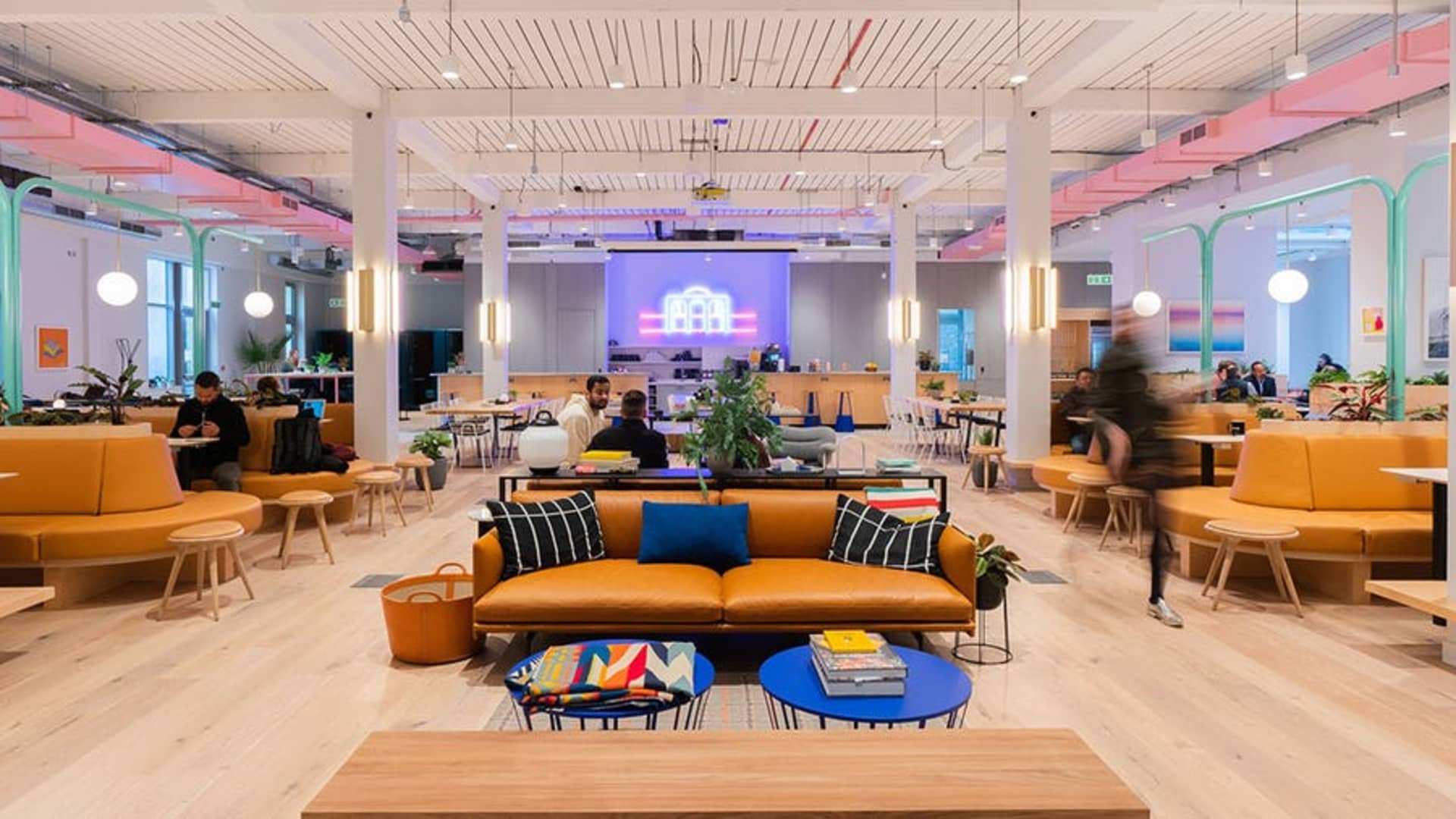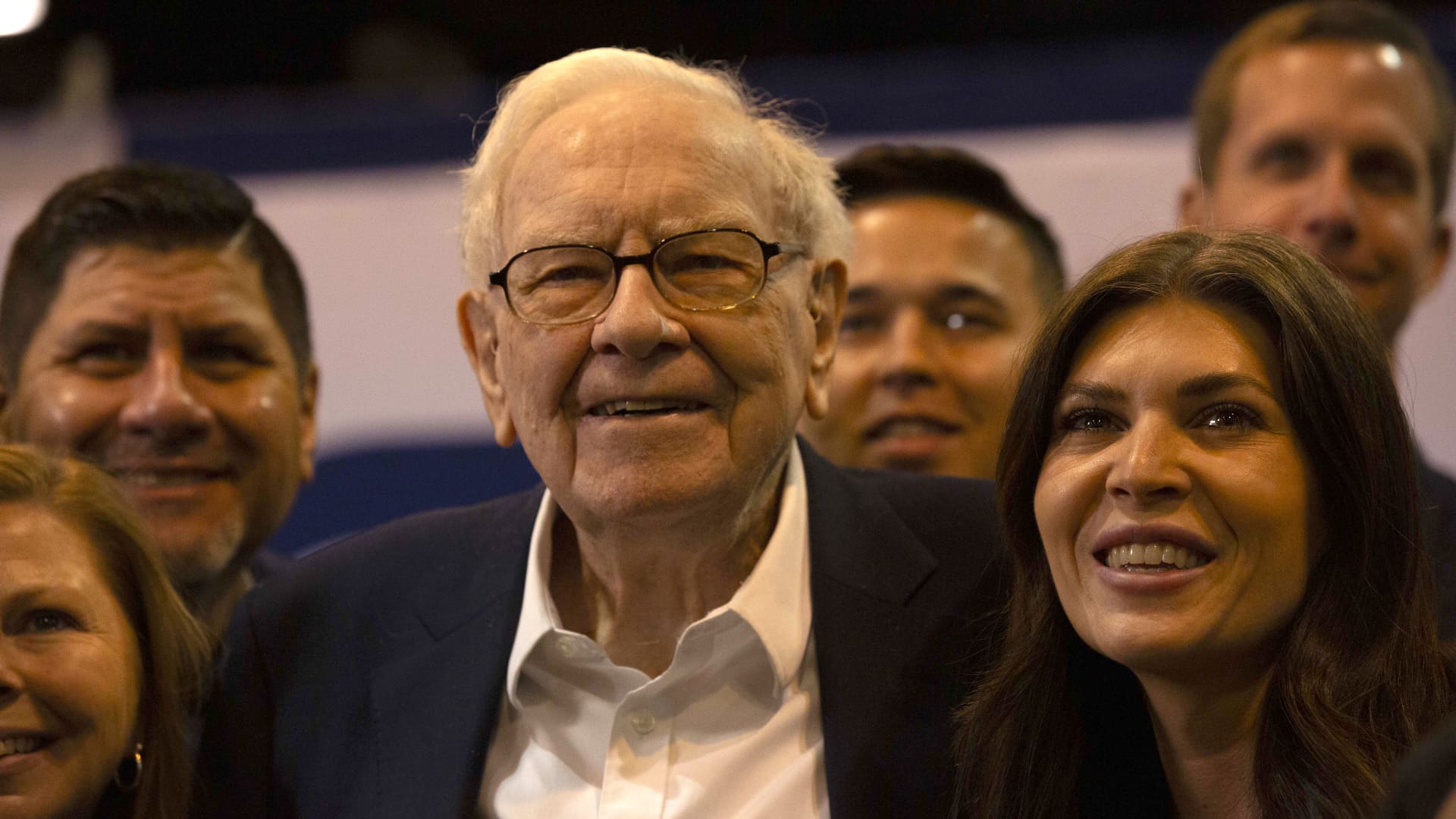WeWork has a massive footprint in London. Its bankruptcy could shake up the city’s office market


TikTok’s London office is based out of a WeWork building in Holborn called Aviation House.
WeWork
WeWork, the U.S. office rental startup, filed for Chapter 11 bankruptcy, threatening office closures across the U.S. where it has become a major destination for tech firms.
The company’s restructuring may also have implications for its London operations, where it is one of the biggest tenants.
According to CoStar, the commercial real estate data company, the company has 36 offices in London, spanning more than 2.89 million square feet.
The company, which was valued at $47 billion at the height of its rise in 2019, said Monday that the bankruptcy filing is limited to WeWork’s locations in the U.S. and Canada.
But uncertainty remains for WeWork’s operations in London and the international offices.
At least one property group has already looked to end its lease agreement with WeWork in the past week, as the firm’s liquidity position looks more precarious.
Trouble afoot for commercial property in London?
WeWork is a major renter of property in London.
CoStar, citing analysis of WeWork’s websites and CoStar’s own data, said M&G and Nuveen are both landlords for two of the buildings WeWork is currently present in.
The largest single landlord with exposure to WeWork’s financial troubles is Almacantar’s 290,000-square-foot Southbank West in Waterloo, CoStar said.
M&G, Nuveen and Almacantar were not immediately available for comment when contacted by CNBC.
The most exposed London submarket is City Core North, where WeWork occupies 684,000 square feet.
WeWork was not immediately available for comment when contacted by CNBC.
Deepak Tailor, CEO of LatestFreeStuff, a startup that offers customers freebies online, said that he doesn’t know what will happen with the office building that his firm is currently occupying in Tower Bridge.
“We’ve actually got an agreement with them for another seven months,” Tailor, who is based in London, told CNBC.
“We’re a bit locked in. I don’t know where we stand from a legal point of view at the moment … From the comms we’ve received, it looks like they’re trying to carry on as normal,” he added.
Tailor has been at his WeWork building for eight years, he said, and found it accommodating as a space to work from, with the office offering free beers on tap.
Now, he fears those free beers will soon dry up. “I don’t know if I trust them as a brand anymore after this,” Tailor told CNBC.
WeWork has suffered one of the most spectacular corporate collapses in recent history over the past few years.
The company tried and failed to go public five years ago, and has since been heavily affected by the Covid-19 pandemic, which caused further pain as many companies abruptly ended their leases.
The economic slump that followed also caused clients to cease their WeWork memberships.
In an August regulatory filing, WeWork disclosed that bankruptcy could be a concern.
The company has said its spaces remain open and operational, and that it will continue to provide members with its co-working experiences.
Lease forfeited
Helical, the property investment firm, recently revealed it had forfeited its lease to WeWork on six floors at The Bower office development in London.
Helical said this was due to “non-payment of rent for the September quarter.” The firm entered into a short-term license arrangement with WeWork, which has since re-occupied the building.
WeWork is required to pay Helical a fee equivalent for the whole of the September quarter’s rent and service charge due under the terms of its previous contractual arrangements, Helical said.
Helical said it was “working on next steps for the space” and would provide an update its Nov. 22 half-year results.
WeWork is a tenant, rather than a property investment firm in its own right. The company rents properties from commercial real estate firms, and then lets them out to companies at higher prices to pocket a small profit on the difference. Several investors have raised skepticism with the company’s business model.
– CNBC’s Rohan Goswami and Ari Levy contributed to this report









